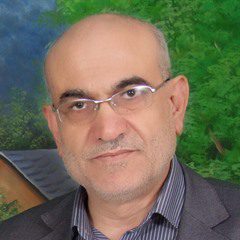Bashar Al-Assad has given an “exclusive interview” to Britain’s Sunday Telegraph, the first with the Western media since the beginning of the revolution in Syria. Ironically, this was shortly before more than 40 under-cover security men were killed on Friday and while the Arab League awaited a response from Syria’s President to its initiative for resolving the current crisis.
During his interview, some aspects of the crisis were discussed, including some suggestions for a resolution, some apparent justifications for the killings, and even veiled threats to the West. Throughout, Assad distorted reality and displayed stubborn defiance.
Despite the fact that the uprising in Syria involves people from across the spectrum of society, Assad reduced it to a “struggle between Islamism and pan-Arabism [secularism]”; apparently, “we’ve been fighting the Muslim Brotherhood since the 1950s and we are still fighting with them.”
Is the current conflict in Syria really as the President describes it? Was the Muslim Brotherhood not also taken by surprise at the protests in the same manner as the other pillars of the opposition were? Although protests were expected in the wake of Tunisia and Egypt, it was still a bit of a shock when they began. Did the people of Syria rise because of ideological demands, or because they yearn for freedom and justice?
It’s true that the Islamists have since mobilised the opposition to some degree but that is nothing other than an expression of the overarching identity of Syrian society. This is the case in all Arab countries which experience an Islamic awakening. In short, ordinary citizens are demanding a free state, justice and dignity.
The reality, therefore, is that the Assad regime is not fighting the Muslim Brotherhood; it is fighting against the vast majority of the Syrian people. If some sections of Syrian society are still hesitant to get involved in the revolution, their reluctance should not be taken as support for the regime or even fear for their future, as Muhammad Haikel has explained the absence of people from Halab and Damascus in the protests. The real interpretation relates fundamentally to the still powerful grip of the security forces and the continued killings, detentions and army deployments. Let the Syrian authorities allow marches for one week with international guarantees for the participants’ safety; we would see millions of Syrians on the streets and squares in the heart of the capital and other major cities, not just in the villages and towns.
According to Bashar Al-Assad, Syria is not Yemen; it’s not Tunisia; and it’s not Egypt: “The history is different and the political realities are different,” he claims. What differences are there? Is not the corruption in Syria the same as the corruption in those countries which forced the people onto the streets? Is repression in Damascus not even worse than the repression in Sana, Tunis and Cairo? Hasn’t the presidency been inherited in Syria, whereas such dynastic ambitions were still at the project stage in those other countries?
Assad’s “reforms” have not been felt on the Syrian streets; all of the regimes which have fallen in the Arab Spring have promised reforms but it did them no good when the crunch came. His theory that killings happen wherever and whenever armies confront civilian protestors is a sickening attempt to justify the unacceptable; killings, torture and detention are carried out to intimidate and deter the people from taking to the streets for their basic human rights.
What is most astonishing in Assad’s interview with the Telegraph was the message he wanted to send to the West. He repeated what his cousin Rami Makhlouf told the New York Times a few months ago and his words were directed more to the Israelis than anyone else “Syria is the hub now in this region,” he claimed. “It is the fault line, and if you play with the ground you will cause an earthquake… Do you want to see another Afghanistan, or tens of Afghanistans?” Assad added that “Any problem in Syria will burn the whole region. If the plan is to divide Syria [that will] divide the whole region.”
The message is clear. Resistance and regime violence in response will continue, and the resultant chaos will affect Israeli and Western interests. Does the West really want another quagmire like Afghanistan even closer to home in the Middle East?
What do the defenders of the Assad regime say? Do they really believe he is the first line of defence for the Arabs in the confrontation with the Israelis and the West? Or is he scare-mongering when he warns about the alternative to his dictatorship?
Freedom for the people of Syria does not equate to civil war, partition of the country or chaos. On the contrary, when the people are able to determine their own affairs that will also determine how they relate to friends and enemies alike in the best interests of the people of Syria, not those of their enemies.
Bashar Al-Assad is looking for an exit strategy rather flippantly, but his ultimate fate will be the same as the others, whether in one month or in one year. He has no legitimacy as a leader; he should recognise this and put an end to the matter sooner rather than later.
The views expressed in this article belong to the author and do not necessarily reflect the editorial policy of Middle East Monitor.








